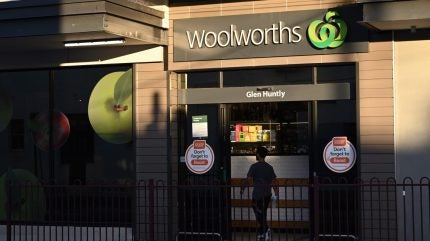
Australia’s parliament is to hold an inquiry into what one main political party believes is price-gouging, or profiteering, by the country’s major supermarkets, Coles and Woolworths.
The probe, to be conducted by representatives of the Senate, is to examine the role of the country’s big two grocers during an inflationary period marked by fast-rising food costs.

Discover B2B Marketing That Performs
Combine business intelligence and editorial excellence to reach engaged professionals across 36 leading media platforms.
Australia’s Greens party, which is to lead the inquiry, said the investigation will “scrutinise the impact of market concentration on food prices and the pattern of pricing strategies employed by the supermarket duopoly”.
The review – which has gained cross-party support – will also assess the rise in essential item prices, the validity of discounts offered and “the inflation of profits during economic hardship”.
Greens economic justice spokesperson Senator Nick McKim said: “Coles and Woolworths are making billions in profits by price-gouging in a cost-of-living crisis,”
“For too long the big supermarkets have had too much market power. This allows them to dictate prices and terms that are hitting people hard. It’s time to smash the duopoly.

US Tariffs are shifting - will you react or anticipate?
Don’t let policy changes catch you off guard. Stay proactive with real-time data and expert analysis.
By GlobalData“Coles and Woolworths are making billions in profits because they feel that they can overcharge people without repercussions. It needs to end.”
McKim said the Greens wants the grocers’ CEOs to “justify their decisions” in a public hearing.
“This inquiry is a critical step toward dismantling the market concentration that’s led to unfair pricing and stifled competition. We’ll find a way to dismantle their power and bring grocery prices down,” he said.
Under its terms of reference, the inquiry will look at the price-setting practices and market power of major supermarkets. It will study the effect of market concentration on the price of food and groceries and the patterns of price-setting by the two major supermarket chains.
Coles and Woolworths control about two-thirds of the Australian grocery market, while the German discounter Aldi has a share of just over 10%.
The probe will also look at rising supermarket profits, the increase in the prices of essential items and the prevalence of “opportunistic pricing, price mark-ups and discounts that aren’t discounts”.
The supermarkets will also face scrutiny on the contribution of own-brand products to their market position, the use of technology and automation to “extract cost-savings” from consumers and employees and any potential improvements that could be made to the regulatory framework to deliver lower prices for food and other groceries.
It will also look at frameworks to protect suppliers when interacting with the major supermarkets.
Just Food has asked Woolworths and Coles, outside of Australian office hours, for their response to the announcement of the inquiry.
Woolworths reported a 6.4% rise in sales from its Australian Food division to A$13.08bn (US$8.66bn). In the year to the end of 25 June, sales from the division grew 5% to A$48.05.
In October, it was announced food price rises had eased in Australia in the third quarter. They increased by 0.6% during the quarter, marking the softest quarterly rise since September 2021.
But in the 12 months to September, food and non-alcoholic beverage prices rose 4.8%, up from the rise of 4.4% in August.





